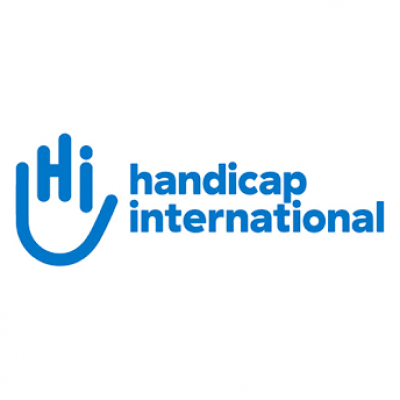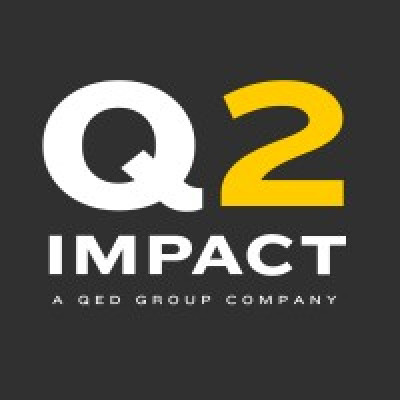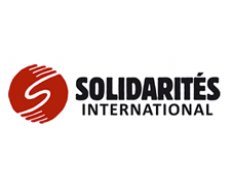Details
Description
Background
UNDP is committed to achieving workforce diversity in terms of gender, nationality and culture. Individuals from minority groups, indigenous groups and persons with disabilities are equally encouraged to apply. All applications will be treated with the strictest confidence.
UNDP does not tolerate sexual exploitation and abuse, any kind of harassment, including sexual harassment, and discrimination. All selected candidates will, therefore, undergo rigorous reference and background checks.
Iraq has come a long way towards decentralization, but decentralization is a complex and long-term process and decisions taken now about state reform will have repercussions in centuries to come. Federalism is enshrined within the constitution. Article 116 of the Constitution states, “The federal system in the Republic of Iraq is made up of a decentralized capital, regions, and governorates, as well as local administrations.” Law 21 passed in 2008 was an attempt to decentralize some services to the governorate level. Law 21 has been amended three times, most recently in April 2018, providing more clarity on the powers of the provinces and affording greater administrative and fiscal authority to sub-national actors, including provincial councils and governors. It is now more commonly known as the Provincial Powers Act and applies to 15 out of 18 provinces, excluding the three provinces within the Kurdistan Region.
One of the main aims of decentralization was to yield substantial improvement in service delivery at the local level based in a fair distribution of responsibilities and resources. Of course, to state that centralization/ decentralization is the only reason for worsening services would be to underestimate the other political and economic issues facing Iraq. The COVID 19 lockdowns and the price of oil dropping has created an economic crisis. The rise and spread of Al Qaeda and then ISIS meant that public resources were prioritized for war machineries and the security situation deteriorated. There have also been widespread protests in 2019 against the government that resulted in the resignation of the Prime Minister. All these factors combine to hamper service delivery, however, also highlight the need to Improve it. To further this process, the Government now wishes to move forward the decentralization process to address the political, administrative and fiscal bottlenecks with a view to improving service delivery in Iraq. Decentralisation, in the sense of these ToR, does explicitly start at the level of de-concentration and shall be focused on local service delivery, relevant for and tangible to the civil society.
The overall objective of UNDP’s Support to Recovery and Stability through Local Development project (LADP III, working in 9 governorates: Duhok, Erbil, Sulaymaniyah, Ninewa, Anbar, Salah al-Din, Missan, Thi-Qar and Basra) is, in co-ordination with UN-Habitat, to promote the stability and socio-economic development of Iraq. Project activities focuses on enhancing local government systems by supporting decentralization processes, implementing selected local priority development projects already listed in the existing local development plans at provincial level and assisting returns and better living conditions in conflict/fragile areas, through the rehabilitation and upgrading of housing and community infrastructure and services.
The specific objective is that selected Governorates are able to manage effectively and transparently local government systems and public services. For this it is important that institutional and management gaps at the governorate/local level are plugged in and that services are informed by local needs, efficiently provided and accountable to communities. Although the Governorates have experience in developing provincial strategies, investment plans and projects, devolution will require planning and investment budget planning for entire service delivery functions, not just individual projects.
Duties and Responsibilities
The Programme Analyst will be required to provide all necessary support to the implementation of the project’s major sub-projects, i.e., 9 projects with the involvement of European peers and 6 projects in line with governorate priorities. Additionally, he/she will need to provide targeted support to project acitivites involving governmental authorities at central and governorate level as well as the project’s activities related to donor coordination. Specifically, the Programme Officer will perform the following:
Programme/Project Management:
Establish working relations with Responsible Parties ensuring timely implementation of the project;
Maintain an effective partnership with Governmental and Local authorities, implementing partners and UNDP colleagues to exchange technical information and resolve Programme/Project implementation issues to ensure that results are achieved as planned;
Manage relations with the UNDP Regional Office;
Write/review the technical development of Terms of Reference in accordance with public procurement specifications, Concept Notes, Note to the File, …;
Draft agreements with Responsible Parties (LoA, RPA, LVGA) ensuring compliance with UNDP Rules and Regulations, and conduct the processes of Responsible Parties’ Risk Assessment (drafting PCATs, CACHEs, NTFs, and collecting and reviewing the necessary supporting documents, etc.);
Review and evaluate Project Proposals submitted by the Responsible Parties, assist the Responsible Parties in improving the Proposals to meet the Programme's requirements, and ensure substantive rigor in the design and application of proven successful approaches;
Steer the processes for RPA/LoA Amendments, Budget revisions, No-Additional Funding Extensions;
Ensure monitoring and coordination of activities, especially the Local Development and Peer-to-Peer projects’ stages of implementation;
Assess the projects’ performance and results verification aspects to ensure that expected results are achieved, identify success factors and incorporate best practices into project work.
Technical support:
Research critical and technical information on relevant subjects;
Research linkages across programme activities to identify critical points of integration/synergy;
Assist in the initiation and implementation of activities related to key actors in the decentralization process, specifically Development Coordination and Planning Councils and HCCP;
Assist in the initiation and implementation of activities related to donor co-ordination at all governmental levels;
Support the Responsible Parties in designing responsible exit and transition strategies.
Reporting & Donor relations:
Review the Responsible Parties’ monthly, quarterly and annual reports, consolidate inputs, ensure their timely review, approval and implementation;
Write quarterly and annual reports;
Contribute to the development of tools to monitor the achievement of results/targets;
Prepare the consolidated inputs for corporate information requests and reporting, including Integrated Work Plan, Results Oriented Analysis Report (ROAR), UNDP Country Programme Document (CPD);
Draft briefs and talking points as needed.
Support the programme in any other tasks as requested.
Institutional Arrangement
The Programme Analyst reports directly to the Programme Manager / UNDP Iraq and works under the guidance of the LADP Programme Manager.
Competencies
Core
Achieve Results: LEVEL 2: Scale up solutions and simplifies processes, balances speed and accuracy in doing work
Think Innovatively: LEVEL 2: Offer new ideas/open to new approaches, demonstrate systemic/integrated thinking
Learn Continuously: LEVEL 2: Go outside comfort zone, learn from others and support their learning
Adapt with Agility: LEVEL 2: Adapt processes/approaches to new situations, involve others in change process
Act with Determination: LEVEL 2: Able to persevere and deal with multiple sources of pressure simultaneously
Engage and Partner: LEVEL 2: Is facilitator/integrator, bring people together, build/maintain coalitions/partnerships
Enable Diversity and Inclusion: LEVEL 2: Facilitate conversations to bridge differences, considers in decision making
Cross-Functional & Technical competencies
Partnership Management: Relationship Management : Ability to engage with a wide range of public and private partners, build, sustain and/or strengthen working relations, trust and mutual understanding
Legal: Legal Analysis Skill: The ability to digest a large amount of information and facts in order to frame and understand an issue, apply the legal framework to the particular set of facts and present a coherent and comprehensive analysis of the situation presented in order to deliver practical and meaningful advice. This skill includes the ability to provide an objective assessment of the case, the organization's best arguments for proceeding and a recommended course of action. It also includes the capacity to think creatively and flexibly, within the applicable legal framework.
Ethics: Legal Analysis and Report Writing: Ability to apply legal analysis to a diverse range of complex issues, and express themselves clearly; ability to communicate well, to all levels of staff and contractors/consultants, governments et.al.
Business Direction & Strategy: Negotiation and Influence: Ability to reach an understanding, persuade others, resolve points of difference, gain advantage in the outcome of dialogue, negotiates mutually acceptable solutions through compromise and creates ‘win-win’ situations
Business Development: Human-Centered Design: Ability to develop solutions to problems by involving the human perspective in all steps of the problem-solving process
Business Management: Project Management: Ability to plan, organize, prioritize and control resources, procedures and protocols to achieve specific goals
Business Management: Partnerships Management: Ability to build and maintain partnerships with wide networks of stakeholders, Governments, civil society and private sector partners, experts and others in line with UNDP strategy and policies
Required Skills and Experience
Min. Education requirements
Master’s Degree in management, social sciences, politics, development studies, law or closely related
Min. years of relevant work experience
At least 2 years of relevant work experience in Programme Support and implementation, preferably within UNDP.
Required skills
Experience in UNDP Programme Management Systems, Procedures and Policies;
Experience in working in volatile countries, as e.g. conflict/post-conflict countries;
Hands-on experience in design, monitoring and evaluation of development projects;
Proven analytical and strong writing skills;
Theoretical knowledge and practical experience in governance;
Experience with ERP systems.
Desired skills in addition to the competencies covered in the Competencies section
Experience in working with EU funded projects;
Experience in working in Arab countries;
Experience in partnership building and management with multi-stakeholders, including post-conflict Government agencies, and civil society organizations;
Experience in inter-agency programme coordination.
Required Language(s)
Excellent command of written and spoken English;
Knowledge of Arabic is highly desirable.





